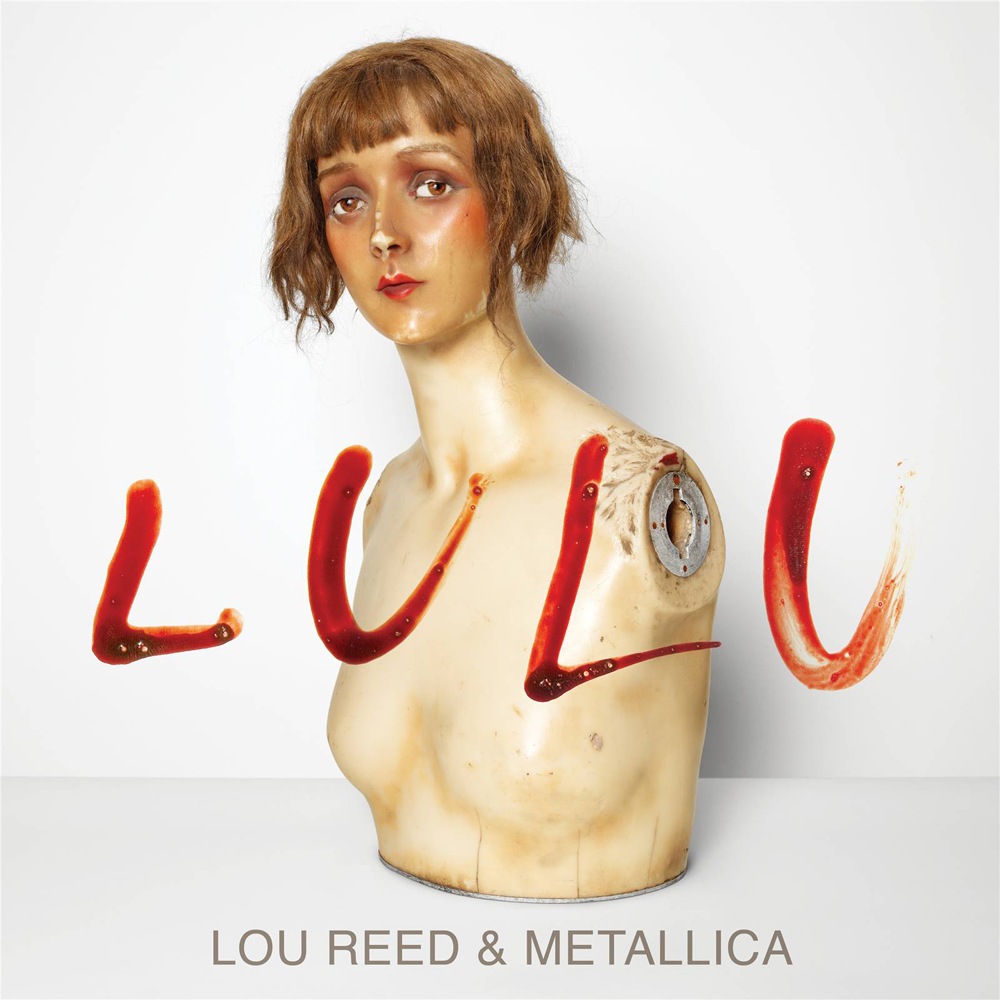Twenty minutes into listening to Lulu and my eyes have glazed over. The swirling chaos of Lou Reed bellowing over a stampede of distorted guitars is just too much to digest on the first listen. Sometimes, that’s the hallmark of a rewarding listen, one that becomes clearer with every spin. Unfortunately, Lulu is more like an album that can’t be deciphered at all.
A collaborative album between Lou Reed and Metallica, two very different and very prominent presences in popular music, is nothing if not intriguing. On the surface, the combination is like water and oil, with Reed’s arty minimalist mentality at odds with Metallica’s mainstream over-produced heavy metal goop. But if one listens closely, there are moments on Lulu where it all comes together, where it seems like this is what Reed has been trying to achieve his entire life, from White Light/White Heat to Metal Machine Music.
There are other, more plentiful moments where it’s clear this must be a spectacularly expensive disaster.
Lulu is an album of controlled cacophony, with Metallica’s buzzsaw distortion grinding away beneath Reed’s incomparable brand of sprechgesang. The words often match the ugly rumble of the guitars, the semi-shocking profanity of lyrical phrases like “puny body and a tiny dick” and “spermless like a girl” rising above the din long enough to turn the listener’s stomach. Occasionally, Hetfield’s trademark heavy metal bark can be heard adding a little harmony to Reed’s tuneless mystic babbling.
If you’re curious what the whole mess actually sounds like, you’re going to have to dig a little in the archives of pop culture to decipher the most accurate comparison I’m able to give. In early-2000s cartoon comedy Home Movies, there’s an episode in which Duane’s rock band, Scäb, plays a heavy metal rock opera interpretation of Kafka’s Metamorphosis. That’s essentially what Lulu is, from the highbrow concept to the heavyhanded delivery. Yes, there is a concept here, but only the musicians themselves may know exactly what it is. Chances are even better that only Reed really understands. It’s based on two plays by Frank Wedekind about a prostitute and Jack the Ripper, but that’s not immediately apparent.
Of the songs here, “The View” and “Iced Honey” actually work fairly well. No, “The View” is not about that daytime TV talkshow, but maybe ABC should considering using it as the show’s theme song. After all, that kind of collision between two vastly different worlds isn’t quite so hard to imagine once you’ve heard Lou Reed and Metallica collaborate on an album.
Though it sometimes seems like Hetfield and Kirk Hammett are just recycling leftover grind-metal sludge riff clichés from their decades in the biz, it’s clear that Reed’s presence actually encouraged them to think outside their heavy metal box. They stray as far from their “sound” as they ever have in the context of Metallica. Most of the songs are still conveyed with blend of heavy distortion and softer acoustic picking that should be familiar to anyone who’s ever heard “The Unforgiven,” but metal chord changes are thrown out the window in favor of a two-chord progression that’s more “Sweet Jane” than “Sweet Amber” on “Iced Honey.”
The whole thing comes off as either an expensive major label joke or nigh-impenetrable high art concept. Maybe both. Either way, it’s not likely to appeal to many. Surely even die-hard Reed or Metallica fans will find the combination of the two difficult to enjoy. At the very least, it’s a curiosity that shows the artists involved are willing to step outside of their normal roles and try something different.

